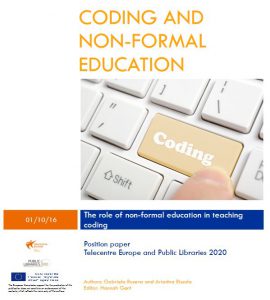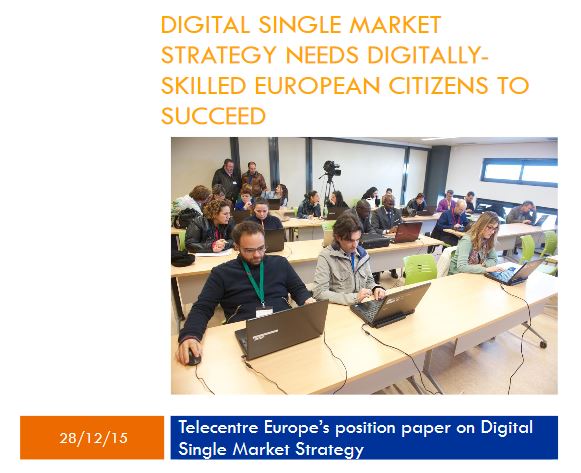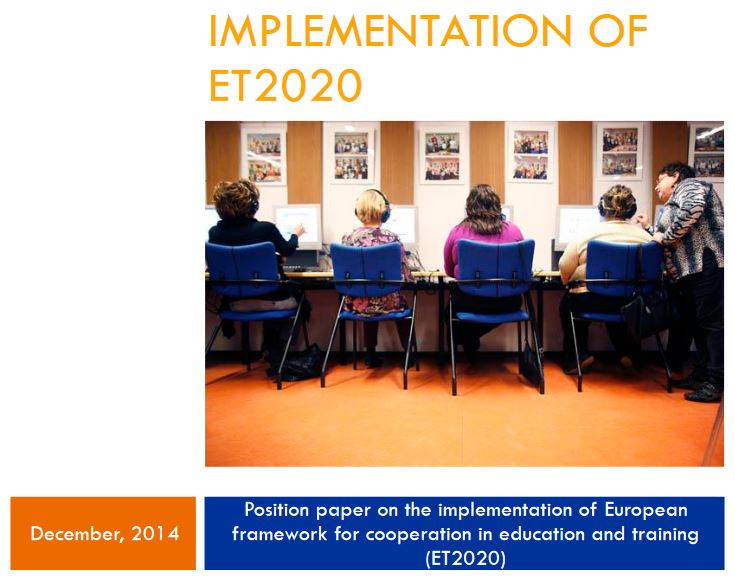16 Oct Coding and non-formal education (Telecentre-Europe’s position paper)
16 Oct, 2016
 On the occasion of EU code week, this position paper comes at a time when coding is increasingly promoted by EU institutions as a way to catch up with demand for digital skills and ICT professionals’.
On the occasion of EU code week, this position paper comes at a time when coding is increasingly promoted by EU institutions as a way to catch up with demand for digital skills and ICT professionals’.
Telecentre Europe (TE) alongside Public Libraries 2020 (PL2020) recognise the effort to fill the job vacancies in the ICT field through teaching coding, but they also see coding as a tool for empowering all citizens in today’s society, one where we are increasingly being surrounded by digital technologies and machines penetrate in every aspect of our lives.
For this reason, TE and PL2020 strongly believe that coding should have a broader audience and be accessible to everyone, including disadvantaged groups, and that this can better be achieved through non-formal training. This is why we put forward the following recommendations to the EC:
- Broaden the focus of policy initiatives related to promoting coding
- Designate a consortium for the coordination of pan-European initiatives such as the EU code week
- Encourage Member States to make links at national level with at least two EU-wide annual initiatives – Get Online Week and EU Code Week
- Provide seed funding to incentivise organisations working with disadvantaged groups
- Put more emphasis on training the trainers
Read the full position paper here.








